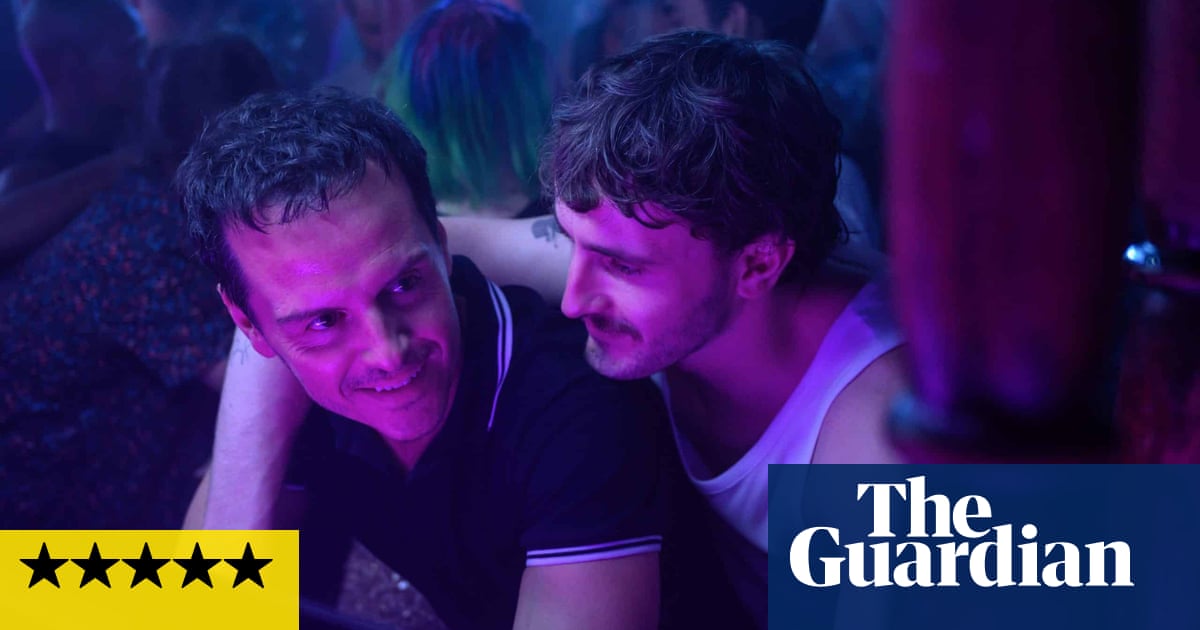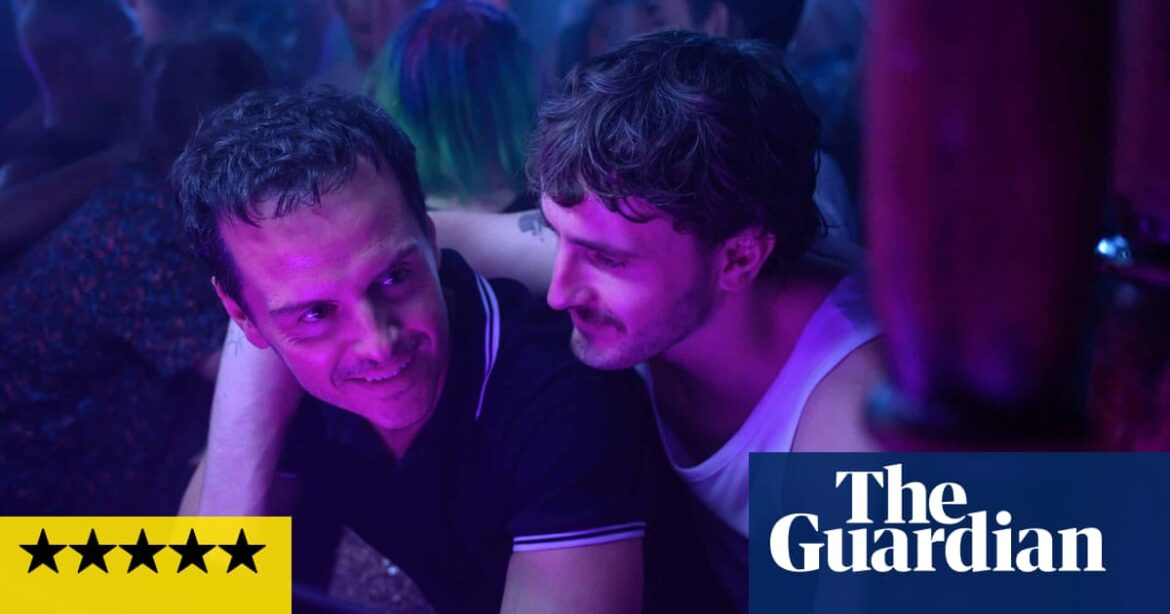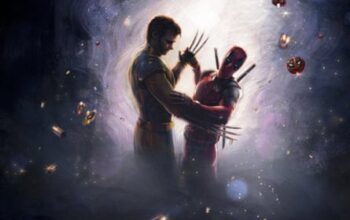
Andrew Haigh’s mysterious, beautiful and sentimental film is a fantasy-supernatural romance about loneliness and love. It concerns the climacteric of middle age when you realise you are probably nearer to death than birth, there is no guarantee that you will live your life inside a relationship and your parents were ordinary, vulnerable people – just like you.
Haigh’s adaptation of All of Us Strangers is based on the Japanese novel Strangers by Taichi Yamada, which was previously filmed in Japanese and translated into English by Wayne Lammers. The adaptation may deviate from the original’s unsettling tone and instead embrace a more bittersweet atmosphere, while still maintaining its eerie and mysterious elements. However, there is also a subtle sense of discovery and revelation in these elements.
Andrew Scott portrays Adam, a writer who is struggling with depression and working on a script based on his relationship with his deceased parents, who died in a car accident when he was 12. Through sequences without dialogue, director Haigh shows us Adam’s lack of motivation for work, his habit of watching daytime television, snacking on cookies, and reminiscing over old photos from his childhood while listening to music from that time period, specifically Frankie Goes to Hollywood’s “The Power of Love.” Adam lives alone in a modern London apartment building that resembles something out of a J.G. Ballard novel, and he believes he is the sole occupant. However, he begins to notice another man, Harry (played by Paul Mescal), who playfully catches his attention. Like Adam, Harry is also lonely, but unlike Adam, he tends to drink a bit more. Under the influence of alcohol, Harry works up the courage to approach Adam.
As Adam’s complicated relationship gains momentum, he spontaneously decides to visit his childhood home in Croydon. To his surprise, he discovers that his parents, who passed away when he was young, are actually still alive and living in the same house. The house is perfectly preserved from the 1980s and his parents have not aged a day. They welcome him with a calm and lighthearted demeanor, as if he had just returned from university and needed help with laundry. This is not just a figment of Adam’s imagination, but rather a miraculous opportunity to have a mature conversation with his parents about his life, his sexuality, and his budding relationship.
All of Us Strangers, with its British charm and politeness, brought to mind Ian McEwan’s The Child in Time and Will Self’s The North London Book of the Dead. In Self’s novel How the Dead Live, we learn that deceased individuals reside in dull suburbs. However, in The North London Book of the Dead, the protagonist discovers that his late mother has taken up residence in a flat in the Crouch End neighborhood of north London. When Adam has a private conversation with his mother, who is dressed in a bright pink tracksuit, she scolds him to remove his wet clothes after getting caught in the rain on his way over. This moment reminded me of Marty McFly’s encounter with his mother in Back to the Future, but with more serious implications. While looking at Adam, his mother realizes that he bears a striking resemblance to her own father, leading to the realization that this ghostly presence is more than just a figment of Adam’s imagination.
The protagonist’s parents do not display any negative reactions to his homosexuality. They do not put on a fake show of being unimpressed, surprised, or nonchalant about it – as some parents may feel obligated to do in both art and life, with varying levels of sincerity. The father jokingly mentions his inability to catch a ball, while the mother expresses concern about his potential loneliness and childless lifestyle, unaware of societal and legal changes since her passing. The author also includes humorous and whimsical scenes, such as the protagonist climbing into bed with his parents while wearing oversized pajamas from his childhood. Despite the comical nature of these scenes, the actors perform them with a genuine seriousness.
Skip over the advertisement for the newsletter.
after newsletter promotion
The dynamic between Adam and Harry in their relationship offers hope for happiness and includes engaging conversations about the changing usage of the term “gay” to “queer.” Harry suggests that the word “gay” became discredited due to its use as an insult in school, such as calling something a “gay bike” or a “gay haircut.” Some may disagree about the final scene of the film, questioning if it ventures too far into a predictable genre and if the emotional investment in previous scenes was a diversion. However, the exceptional acting from the entire cast and director Andrew Haigh’s signature style, which blends themes of love and intergenerational relationships from his previous films Weekend and 45 Years, make this movie a must-see.
As Adam strolls through a park with a moody demeanor, his heart skips a beat when he notices another man in the distance who nods towards a group of trees. Curious, Adam follows, but the outcome is not what we anticipate. Overall, the movie is deeply gratifying and impactful.
Source: theguardian.com



